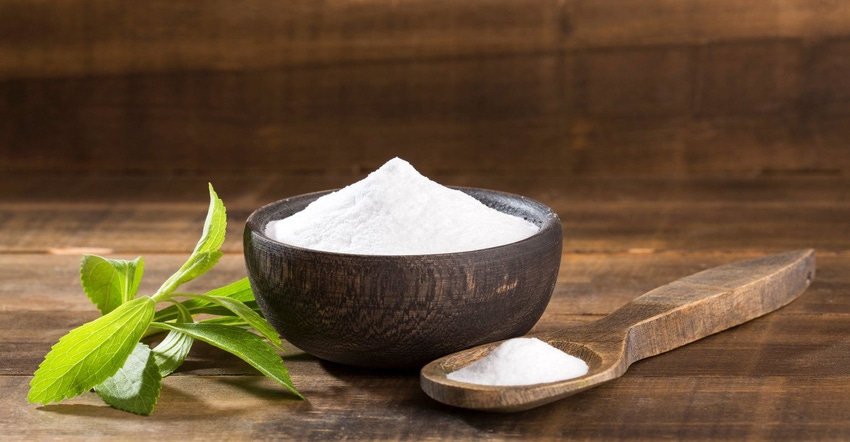Creating successful reduced-sugar sweetening systems remains a challenge, but sports drink enthusiasts want beverages that deliver on label-friendly preferences and taste great.

For years, sports drinks have been among the fastest-growing categories in the beverage space. However, as they moved mainstream, they had to adapt to reflect the expectations of a broader group of consumers. Today’s sports drink enthusiasts want choices that support general wellness and healthy weight, deliver on label-friendly preferences and sustainability, and most importantly—taste great.
There’s a common thread among all those concerns, and it revolves around sweetener systems. Sugar, for all its sweet taste, is increasingly a non-starter. Data from the International Food Information Council (IFIC) 2021 Food & Health Survey suggest nearly 3 in 4 consumers are trying to limit or avoid sugars in their diet. Those findings align with proprietary IngredienTracker consumer research from Cargill, which consistently finds sugar is most top of mind when consumers are asked which ingredients they try to avoid—mentioned more often than fats, sodium and GMOs.
But it’s not just sugar that finds itself in consumers’ crosshairs; artificial sweeteners have lost their shine, too. According to a 2020 report from HealthFocus International, two-thirds of global consumers said “no artificial sweeteners” is an extremely or very important statement on food labels, and nearly a third claimed they’d pay more for a beverage made without them.
Brands are clearly playing attention. Newer entrants are challenging category stalwarts, doubling down on health and wellness themes with natural positioning, added functional ingredients, and lower sugar and calorie counts. However, while consumers say they want to limit sugar and avoid artificial sweeteners, they still demand beverages that taste great.
Formulating for sweet success
Against these priorities, advances around high-intensity, plant-sourced sweeteners offer the best pathway forward. Take stevia, a relative newbie on the sweetening block. In the years since the first stevia-sweetened drinks hit the marketplace in 2008, ingredient suppliers have invested hundreds of thousands of hours studying its tiny leaf. The resulting gains have been impressive.
Early stevia sweeteners tapped into Reb (Rebaudioside) A, the most plentiful sweet compound in the stevia leaf. While still in use today for low-level sugar replacement, developers found themselves managing aftertastes—such as bitter, metallic or licorice notes—if they attempted more than 30% reductions.
Ingredient suppliers, however, remained committed to the plant-based sweetener, and worked to unlock the secrets to the dozens of sweet components contained inside. Today’s improved stevia-based sweeteners use complex blends of highly purified stevia compounds, often tailored to specific applications, to deliver a more sugar-like taste with fewer off-notes.
To continue reading this article and access additional beverage content, visit the “Breakthroughs in sports nutrition RTD beverages” digital magazine.
Vince Cavallini is Cargill’s beverage, dairy and convenience foods applications manager. His career at the company spans nearly two decades and includes stints as a senior beverage specialist and lead product developer for the beverage applications team. With 21 years of experience in the food and beverage industry, Cavallini has a deep understanding of beverage processing and has helped bring countless beverages to market. His current responsibilities include overseeing the company’s state-of-the-art pilot plant at the Cargill Minneapolis Research and Development (R&D) Center.
About the Author(s)
You May Also Like






.png?width=800&auto=webp&quality=80&disable=upscale)